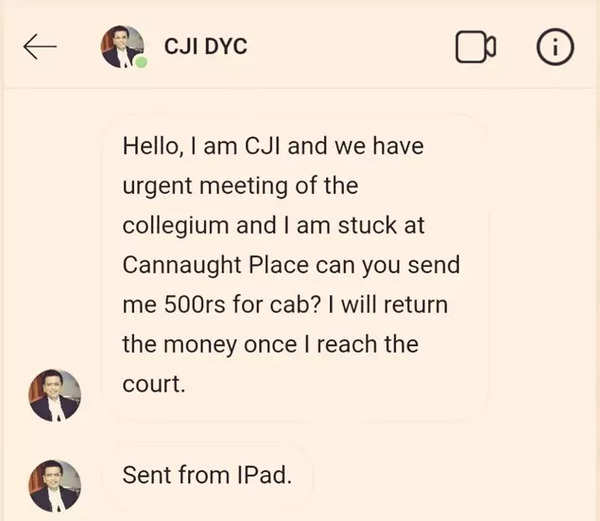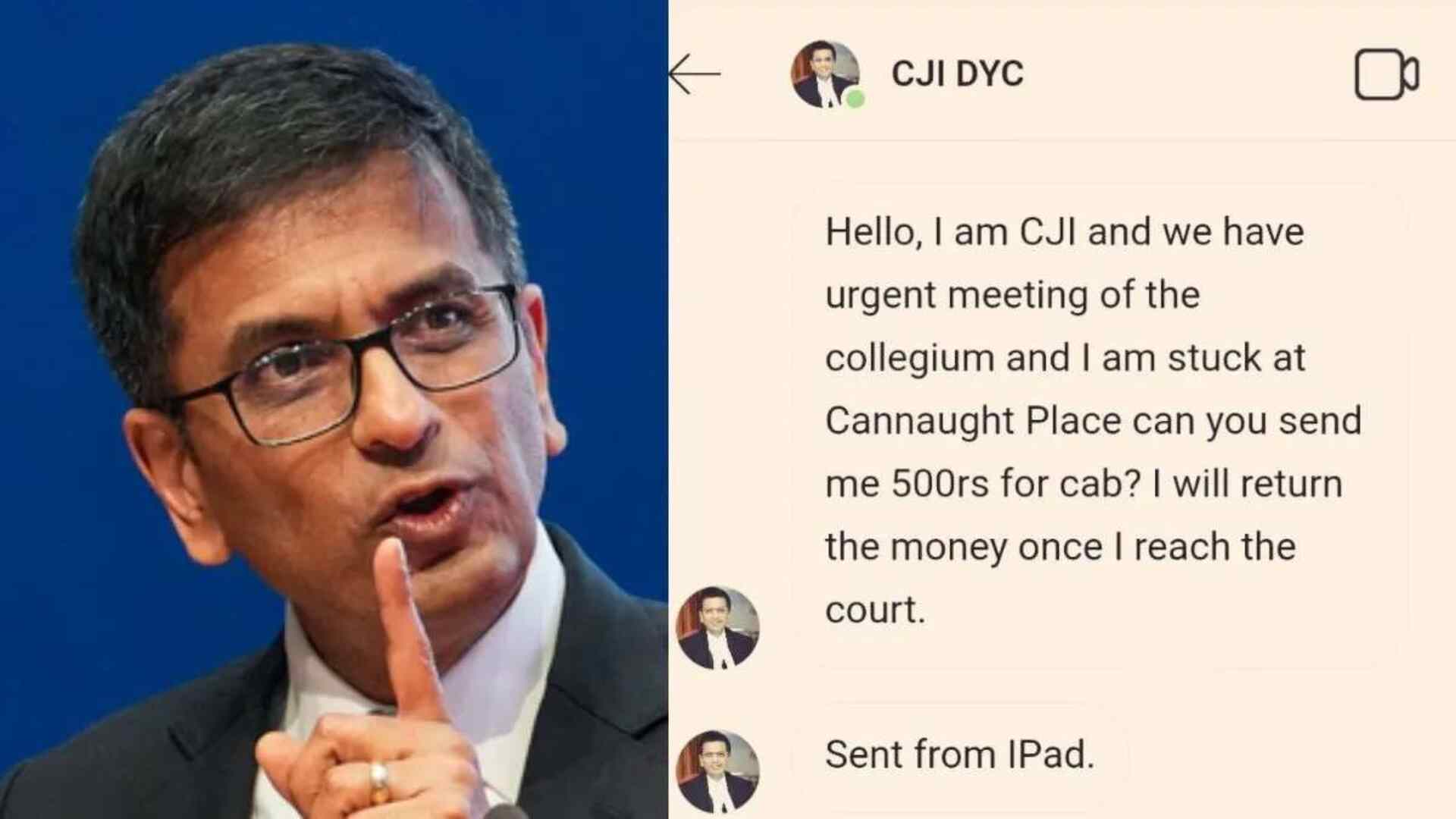On Tuesday, the Delhi Police’s cyber unit received a complaint about a social media account impersonating Chief Justice of India (CJI) D Y Chandrachud. The complaint followed the viral spread of a deceptive post on X (formerly Twitter) in which the impersonator claimed to be the CJI in urgent need of money.
Impersonation Scandal on Social Media
The viral post showed a message purportedly from CJI Chandrachud asking for Rs 500. The message read, “Hello, I am CJI and we have urgent meeting of the collegium and I am stuck at Connaught Place. Can you send me Rs 500 for cab?” The fraudster assured the user that the money would be returned, stating, “I will return the money once I reach the court.”

To add credibility to the scam, the message ended with “sent from iPad,” attempting to mimic the style of a genuine communication.
The Supreme Court authorities acted swiftly after CJI Chandrachud became aware of the post. They filed an FIR with the Delhi Police’s cyber branch, initiating an investigation into the fraudulent activity.
Rising Financial Fraud Cases
The incident comes amid a significant rise in financial fraud cases in India. According to the Reserve Bank of India’s yearly report, released on May 30, the number of financial fraud cases reported by banks surged by 166 percent in the financial year 2023-24, totaling 36,075 cases. This sharp increase underscores the growing challenges of combating financial fraud and cybercrime.






















